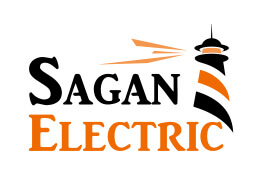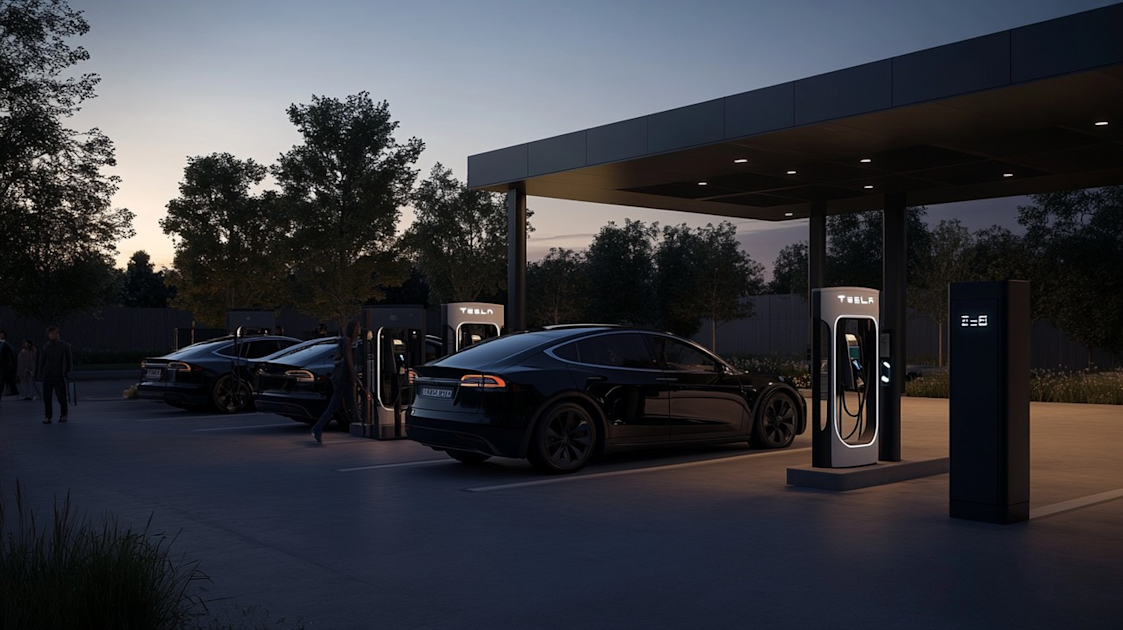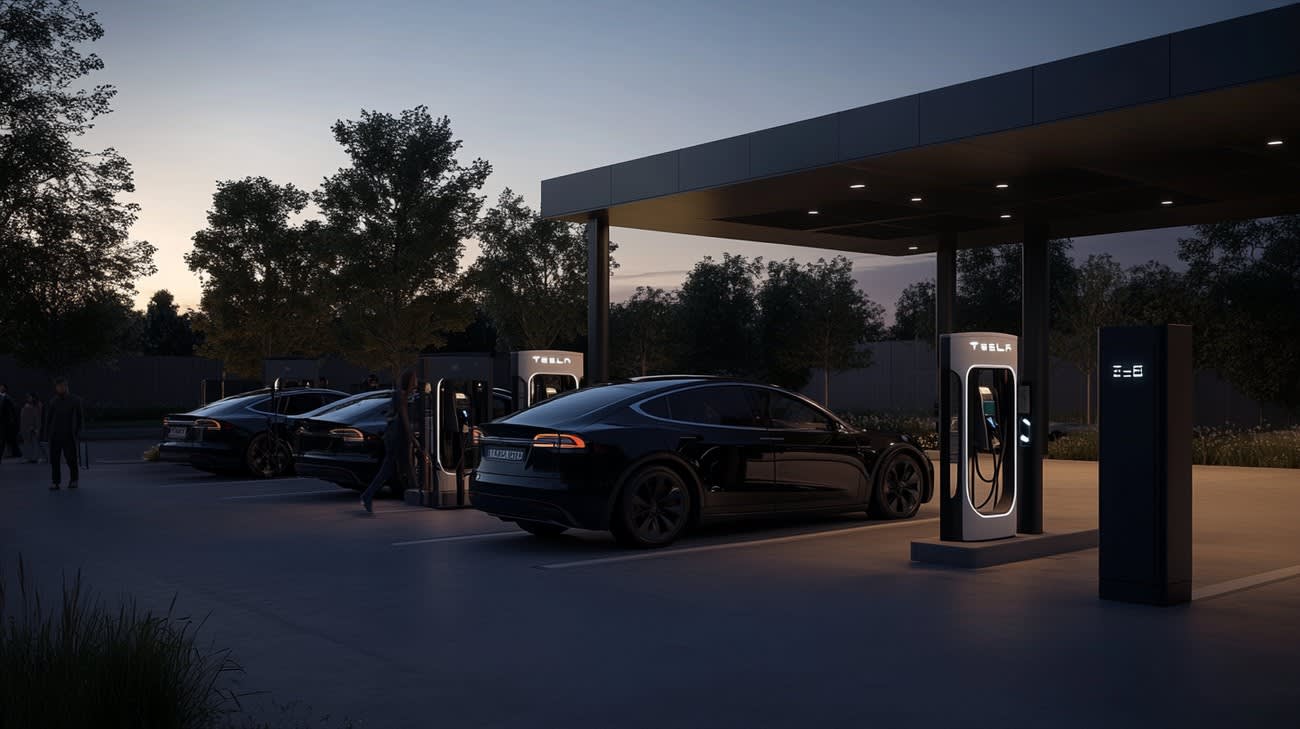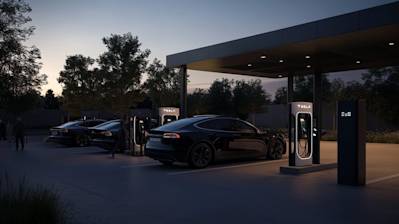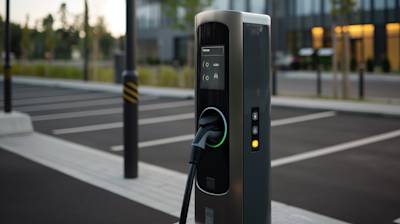The transition from gasoline vehicles to electric vehicles (EVs) isn't something straight out of a futuristic story anymore; it's happening now. Businesses around the globe are embracing this shift toward a more sustainable model of transport by installing commercial EV charging stations. As the EV market continues to expand, the need for convenient and efficient charging solutions becomes more apparent.
The Evolution and Impact of Commercial EV Charging Stations
With the advent of early electric vehicles, the most convenient location for charging was at home. But as EV technology progressed and became more affordable, the demand for public and commercial charging stations escalated.
A commercial EV charging station is essentially a point where you can plug your electric vehicle to recharge. It could be installed in various commercial setups such as shopping malls, office complexes, restaurants, and more. These stations allow EV owners to recharge their vehicles while they shop, work, or enjoy leisure activities. This convenience has played a crucial role in the rising popularity and adoption of electric vehicles around the globe.
This innovative technology not only contributes to environmental preservation by reducing CO2 emissions but also provides an efficient and cost-effective alternative to traditional fuel.
Unleashing the Power of Commercial EV Charging Stations
Commercial EV charging stations are equipped with different levels of power, usability, and compatibility. Let's delve deeper to understand these differentiators:
Level 1 Charging Stations
Level 1 charging stations are the basic, initial range of chargers. Features include:
- Charging via a 120-volt AC plug
- Around 2-5 miles of range per hour of charging
- No special equipment required
Level 2 Charging Stations
These are a notch above Level 1 chargers and offer better performance. Essential features include:
- Charging via a 240-volt AC plug
- Around 10-60 miles of range per hour of charging
- Requires installation of home charging equipment
DC Fast Charging Stations
These are the highest level of EV chargers. They deliver high-speed charging and are suitable for commercial setups. Major features include:
- Charging through a 480-volt DC plug
- Provides around 60-80 miles of range in just 20 minutes of charging
- Requires specialized, high-power equipment
Benefits of Installing Commercial EV Charging Stations
Commercial EV charging stations present a myriad of benefits to businesses:
- Companies can improve their brand image by promoting their commitment to sustainability and environmental preservation.
- They can attract and leverage the growing number of EV users as potential customers, thereby enhancing their business productivity and profitability.
- By providing EV charging facilities, businesses can incentivize their customers to spend considerable time at their premises and avail more services.
- It offers a competitive edge over businesses that don't provide charging facilities.
- Tax credits and rebates are offered by some governments for the installation of commercial charging stations, reducing the financial burden on businesses.
Challenges faced by Commercial EV Charging Stations
While the potential benefits are significant, there are also challenges to address:
- High Upfront Costs: Installation of commercial EV charging stations can be expensive, especially for high-speed DC fast chargers.
- Accessibility: There’s a need for a wide-scale network of charging stations to make electric vehicles a viable option for a broader consumer base.
- Charging Time: Although charging technology has significantly improved, it still takes longer than refueling a traditional petrol vehicle.
Future of Commercial EV Charging Stations
As the world continues to push towards a greener future, the demand for EVs and commercial EV charging stations will increase. Progress in technology and investments in infrastructure will improve the charging speeds, accessibility, and affordability of these stations.
As a result, commercial EV charging stations are set to be a key element in our sustainable future, enabling more people to embrace the change towards electric mobility and a greener world.
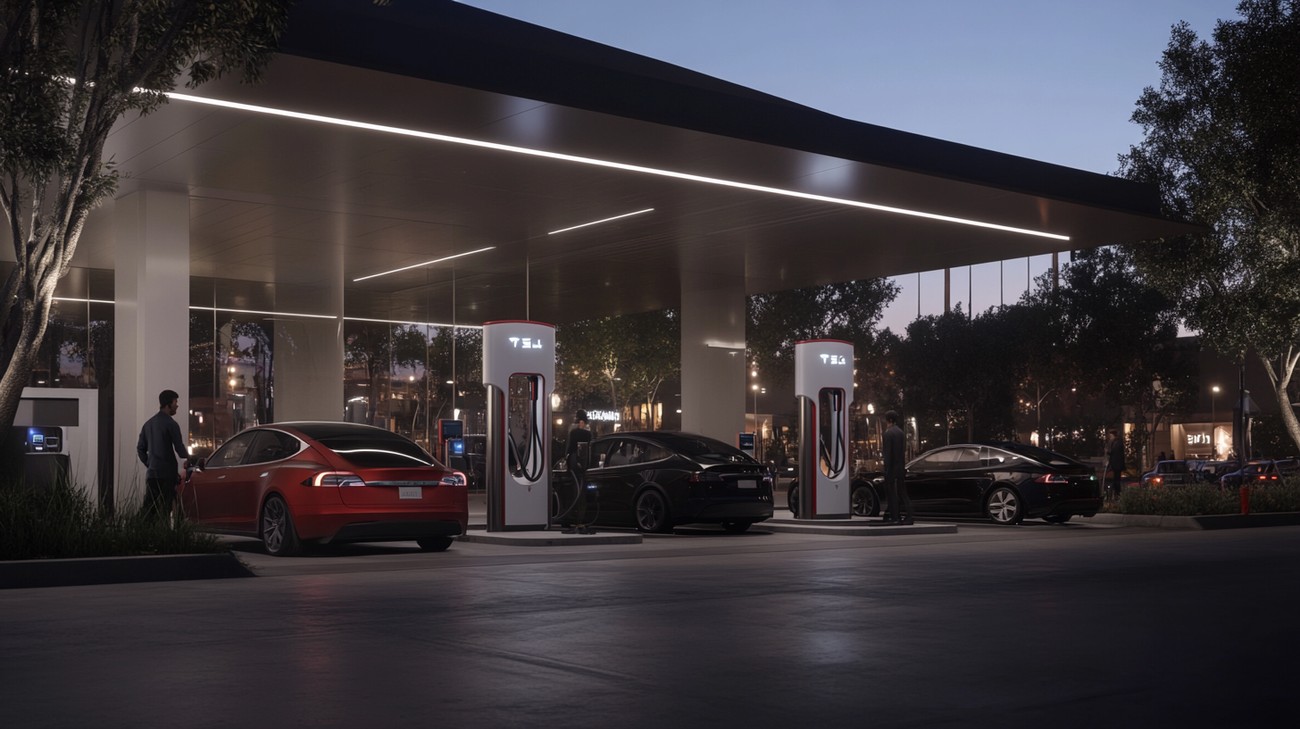
Frequently Asked Questions about Commercial Ev Charging Station
How does a Commercial EV Charging Station work?
The commercial EV charging station provides electrical energy to the rechargeable batteries of electric vehicles. The charging process involves converting the alternate current (AC) into direct current (DC) before delivering it to the EV’s battery. This conversion happens either through an on-board charger within the EV or through an external charger at the station. Higher-powered charging stations speed up this charging process, providing a more convenient charging experience to EV owners.
How many types of Commercial EV Charging Stations are there?
There are primarily three types of commercial EV charging stations, classified based on their power rating and charging speed:
Level 1 Charging Stations: These are standard electric outlets of 120 volts AC. They are usually used for home charging and are not commonly used in commercial settings due to the slow speed of charging.
Level 2 Charging Stations: These utilize a 240 volts AC supply and are perfect for commercial use, providing a balance between charging speed and cost.
DC Fast Charging Stations: Also known as Level 3 charging stations, they use a DC supply and provide a rapid charging solution. However, they are more costly and require more sophisticated infrastructure.
How long does a Commercial EV Charging Station take to charge an electric vehicle?
The charging time at a commercial EV charging station can vary depending on various factors such as the power rating of the charging station, the battery type, and capacity of the electric vehicle. Level 2 charging stations, commonly used in commercial settings, take about 4-6 hours to charge an EV fully. On the other hand, DC fast charging stations can charge the battery to 80% in just 20-30 minutes.
Can any electric vehicle use any Commercial EV Charging Station?
While most electric vehicles can use a majority of commercial EV charging stations, some limitations exist. Certain EV manufacturers use proprietary charging technologies, which means that not all chargers are compatible with all vehicles. It's essential that EV owners check their vehicle’s compatibility with the charging station before initiating a charge.
What are the essential features of a Commercial EV Charging Station?
Commercial EV charging stations come with several innovative features such as intelligent load management to efficiently use power supply, remote access and control, payment options, user identification, real-time data tracking, connectivity with a mobile app, etc. The most advanced commercial EV charging stations can be integrated with solar power systems or battery storage systems for enhanced sustainability.
How to install a Commercial EV Charging Station?
Installation of a commercial EV charging station should be carried out by professional installers. The installation process involves site assessment, permit acquisition, installation of the charging station, connection to the power supply, and final testing. It's important to ensure adherence to local rules, regulations, and codes during installation.
What maintenance does a Commercial EV Charging Station require?
Commonly, commercial EV charging stations require minimal maintenance. Periodic visual inspections to check for any physical damage or wear and tear, cleaning of the charging connector, testing for functionality are generally sufficient. For advanced or networked charging stations, software updates or troubleshooting may also be required occasionally.
Can a Commercial EV Charging Station affect the electric bill?
Yes, the power consumed by the EV charging station will impact the electricity bill. However, a well-managed commercial EV charging station can balance the energy consumption and potentially serve as a source of revenue, if a fee is charged for the charging service.

Pros of Commercial EV Charging Stations
Impact on Environment
Reduced Emissions
One of the significant pros of commercial electric vehicle (EV) charging stations is their contribution toward lowering greenhouse gas emission levels. Electric cars produce zero tailpipe emissions, which decreases the carbon footprint. On the other hand, conventional gas-powered vehicles emit CO2 and other harmful gases that contribute to global warming.
Better Energy Reutilization
EV charging stations often employ smart charging technology to regulate the power supply based on real-time electricity grids' conditions. This aids in energy conservation and allows for the better utilization of renewable energy sources, further enhancing environmental sustainability.
Financial Incentives
Tax Credits and Grants
Governments around the globe are encouraging businesses to establish EV charging stations by offering numerous financial incentives such as tax credits, grants, and rebates. These incentives significantly lower the installation costs and offer attractive returns on investment (ROI) over time.
Rising Demand Leading to Profitability
With the growing adoption of electric vehicles, the demand for convenient and fast EV charging is also increasing. Commercial properties offering charging facilities can attract more customers, resulting in increased business revenue.
Technological Advances
Fast Charging
Technological advancements in the commercial EV charging industry offer fast charging capabilities to consumers. Fast charging stations can recharge an EV battery within an hour, significantly reducing the waiting time for drivers and making EVs a more viable option for long-distance travel.
Smart Connectivity
Some new generation EV charging stations offer smart features such as real-time monitoring, remote control, automatic payments, and diagnostics. These features enable an efficient and seamless charging experience for EV drivers.
Cons of Commercial EV Charging Stations
High Installation Costs
Capital Investment
One of the significant downsides of commercial EV charging stations is the high upfront capital investment required for installation. Purchasing the charging units, performing necessary electrical upgrades, and acquiring the land for the station can be costly.
Maintenance
Although EV charging stations generally have lower operating costs than petrol stations, the maintenance and servicing of charging equipment can also be high, especially for rapid chargers.
Technological Challenges
Limited Battery Lifespan
The lifespan of electric vehicles' batteries is currently limited, which affects the efficiency of commercial EV charging stations. Efficient fast charging requires high-quality batteries, which can be an expensive element for EV owners.
Inadequate Charging Infrastructure
The existing number of commercial EV charging stations is inadequate to meet the growing demand for electric vehicles. There is a gap between the number of EVs on the road and the availability of public charging points, particularly in rural or remote areas.
Grid Capacity
Drain on Power Grid
Without proper planning and management, the significant increase in energy demand from commercial EV charging stations can strain the existing power grid. This could potentially lead to power outages and instability in the distribution network, especially during peak hours.
Need for Renewable Energy Integration
Commercial EV charging stations largely depend on the grid electricity, which might still come from non-renewable resources. To ensure a true environmental benefit, affordable integration of renewable energy sources like solar or wind power into EV charging stations is essential. However, this integration is currently challenging and can be expensive.

Myths and Misconceptions about Commercial EV Charging Stations
When delving into the world of electric vehicles (EVs) and charging stations, it's easy to get lost in the whirlwind of misinformation and myths circulating online and through word of mouth. Below, we'll debunk some common myths and misconceptions surrounding commercial EV charging stations to ensure you can make informed decisions.
Myth 1: Commercial EV Charging Stations are Unreliable
Contrary to popular belief, commercial EV charging stations are highly reliable. These stations are built to last using durable materials, and most charging networks have rigorous maintenance schedules to ensure they always function optimally. Also, technology used for EV charging stations is continuously improving.
Fact
Commercial EV charging stations are designed for durability and reliability. Moreover, manufacturers of the stations, like ChargePoint and Tesla, heavily invest in research and development to deliver cutting-edge, reliable charging solutions.
Myth 2: Charging an EV Takes Too Long
Many believe that charging an EV is time-consuming, more so at commercial charging stations. However, this is far from the truth.
Fact
The time it takes to charge an EV depends on the charger's power output. Commercial charging stations usually offer Level 2 or DC Fast Charging, both of which are considerably faster than charging an EV at home. DC Fast Chargers, especially, can charge most EVs to 80% in roughly 30 minutes.
Myth 3: EVs Drain the Power Grid
There's a common misconception that if everyone switches to electric vehicles, it will overwhelm power grids.
Fact
With the right infrastructure and smart charging solutions, power grids can accommodate the increased demand. Smart charging minimizes the impact of EV charging on the grid by charging during off-peak hours when electricity demand is low. Additionally, energy providers are working on upgrades and innovations to accommodate this evolving energy consumption pattern.
Myth 4: EV Charging Stations aren't Widely Available
Some people think that EV charging stations are few and far between, making EV ownership impractical.
Fact
There's been a significant increase in the availability of public and commercial EV charging stations in the past few years. Companies investing in these facilities include large corporations like ChargePoint, Blink, and Electrify America. Apart from that, many workplaces, commercial buildings, malls, and even hotels now offer EV charging stations.
Myth 5: EV Charging is Expensive
A common misconception is that it costs a fortune to charge an EV, especially at commercial EV charging stations.
Fact
The cost to charge can vary greatly, but it is generally cheaper than refueling a traditional vehicle. At home, it could be even less expensive, especially if the charging is done during off-peak hours. Furthermore, many commercial establishments offer free charging as a value-added service.
Myth 6: EV Charging Stations are Hard to Use
Some people are intimidated by the prospect of using an EV charging station, thinking they are complex and difficult to use.
Fact
Most commercial EV charging stations are designed with user-friendliness in mind. Many offer step-by-step instructions on their screen or have user guides available. Additionally, there are myriad instructional videos and resources online for those wanting extra assurance.
Myth 7: EVs are Only for Short Trips
A significant misconception is that EVs only serve for short trips due to their limited range and a perceived lack of charging infrastructure.
Fact
Not only are EVs equipped with larger batteries providing extended ranges, but there's also an expanding network of commercial charging stations. Nowadays, you can easily find charging stations along major highways and in towns, making long trips in an EV totally feasible.
In conclusion, it's essential to look beyond the myths and misconceptions surrounding commercial EV charging stations. They are reliable, user-friendly, cost-effective, and increasingly widespread, contributing significantly to the ease and convenience of EV ownership.
Summary
Taking into account everything that's been discussed, we believe the impact of commercial EV charging stations on the growth of electric vehicles cannot be understated. These stations lessen the anxiety of EV owners about running out of power while on the road, making the switch to electric vehicles easier and more convenient. Their presence in public spaces could do wonders for promoting the adoption of eco-friendly transportation options.
Ease and accessibility have a huge role to play in any technology’s mainstream acceptance. In the case of EVs, commercial EV charging stations make a practical difference. They make life convenient for EV owners, allowing them to replenish their vehicles' energy almost anywhere - just like how gasoline vehicles have access to fuel stations. As the number of these charging stations grow, we can expect the popularity of EVs to grow hand in hand.
Building up the infrastructure of commercial EV charging stations also benefits businesses. Whether it is installed at shopping centers, offices, or restaurants, it increases dwelling time and foot traffic, offering potential increased revenue for businesses. Furthermore, companies offering this amenity to their employees and customers also enhance their reputation as a green and socially responsible entity. All in all, the future for EVs is bright and commercial EV charging stations will undoubtedly play a major role in that future.
About Sagan Electric
Sagan Electric is your go-to electrical service provider based in sunny Sacramento, California. Nestled in the heart of the Golden State, we've lit up the lives of our clients for over 20 years. With a team of dedicated professionals who're as electrifying as the work they do, we provide a range of services - from residential to commercial, and everything in between. We understand electricity is integral to your daily life, hence, we're committed to providing reliable, efficient, and cost-effective solutions. Sagan Electric: where passion meets power.
Tags: electric vehicle, charging infrastructure, sustainable energy,
